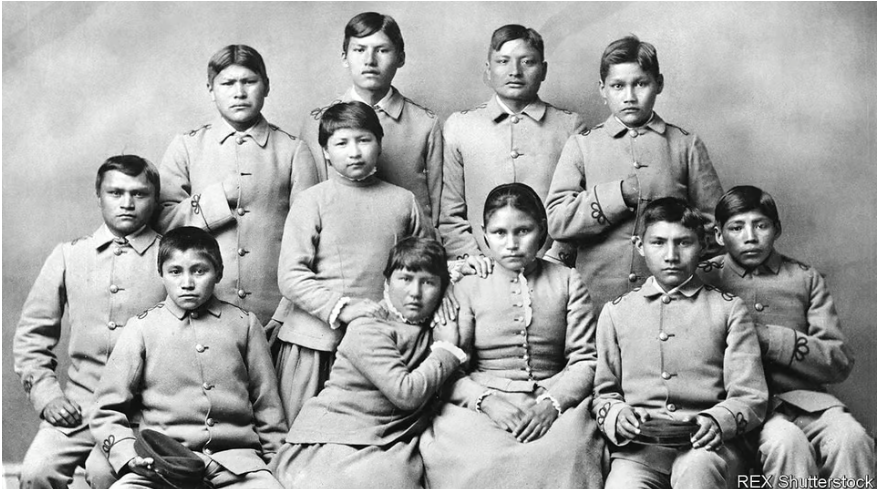
“The education of Native Americans, including their conversion to Christianity, had great appeal to donors in England. The problem was that such experiments were usually disastrous, and most enterprising college officials who got involved in these ventures quickly looked for ways to get out.
Most of the Indian students who showed up at the colleges succumbed either to measles, consumption, or alcoholism. Pedagogically and philosophically, they became trapped between worlds. After a few years of high attrition among Native American students, the colleges had to construct a strategy for holding on to the missionary endowments (given to them to educate and convert Native Americans) while shifting attention away from educating heathens and back toward instilling knowledge and responsibility into young gentlemen.

Tellingly, the council of Indian chiefs who had initially agreed to send their sons to the colleges felt that the colonial education had rendered their future chiefs “good for nothing.” They refused the colleges’ offers to renew the scholarship program and politely suggested that colonial officials might want to send young Englishmen to the tribes for a truly beneficial education in leadership.
If a missionary zeal for the Christian education of Native Americans characterized the colonists and their working connections in England, there is little evidence that this commitment extended to a comparable concern for African Americans.
Nothing in their attitudes or actions with respect to race relations or slaveholding sets college officials and alumni apart from other colonists. There is no record of colonial commitment to the collegiate education of black students, whether in the regular course of study or at special affiliated schools.
Women were excluded from the colleges by statute. There are occasional accounts of young women who were considered for entrance examinations, but there would never have been any intention to allow the woman to matriculate, even if she had excelled in the admissions examination.” From Thelin’s History of American Higher Education


